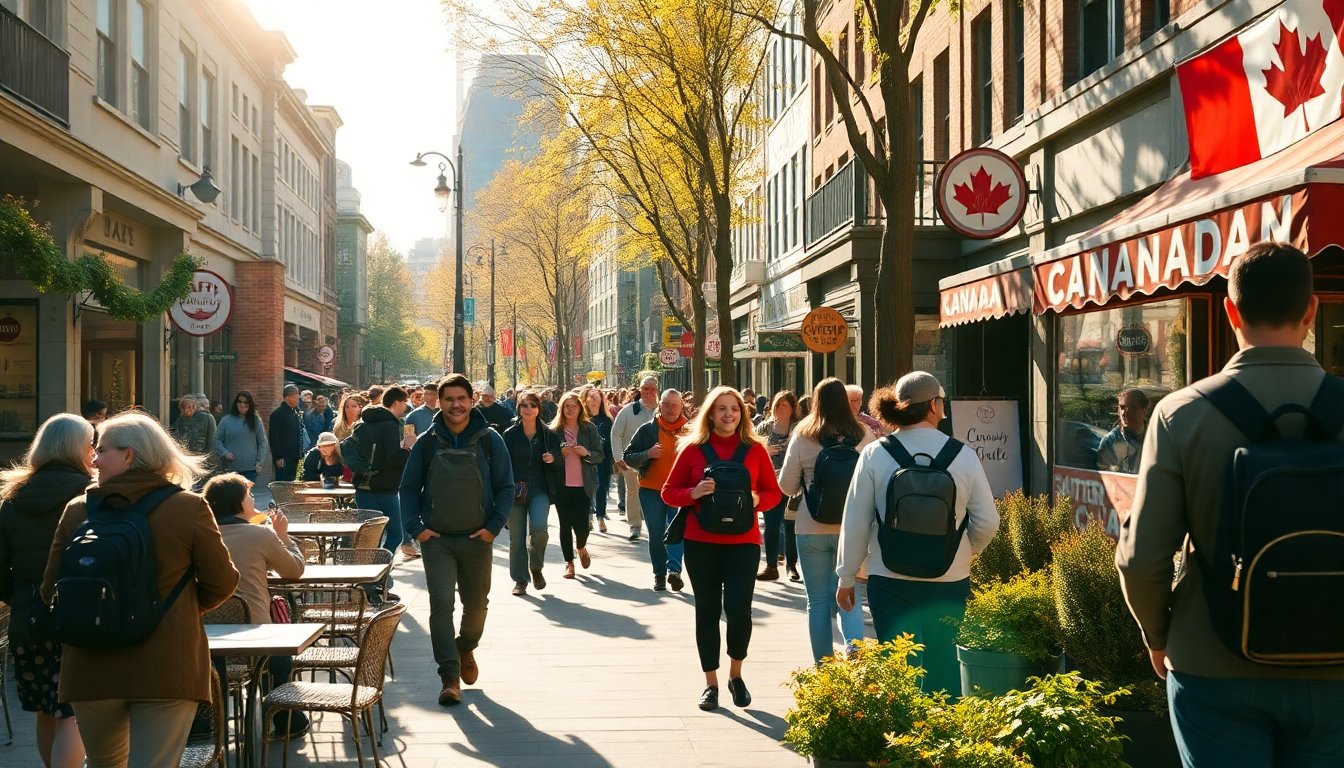Table of Contents
The ongoing trade conflict between Canada and the United States has created a complex economic landscape. While tariffs on Canadian products like aluminum and steel threaten economic stability, an unexpected benefit has emerged in the booming tourism sector.
As political tensions escalate and U.S. travel policies tighten, many travelers are opting for Canada as a welcoming and secure alternative. This shift has led to record tourism numbers across the country, even amid broader economic uncertainty.
The facts
The administration under former U.S. President Donald Trump has been marked by divisive policies and heightened border security. These actions have strained trade relations and contributed to a decline in international tourism to the United States. Consequently, Canada is witnessing increased interest from both domestic and international travelers seeking a more hospitable environment.
Changing travel patterns
According to Wayne Smith, leader of the Institute for Hospitality and Tourism Management at Toronto Metropolitan University, increasing barriers to travel into the U.S. have made Canada an attractive option. Smith states, “The challenges of crossing the border have prompted many to consider Canada a reasonable alternative.” This sentiment is supported by statistics, showing a dramatic 21% drop in air travel and a 33.5% decrease in land travel by Canadians to the U.S. between February and October.
In contrast, the Canadian tourism sector is thriving. Destination Canada reports a significant increase in revenue during the summer months, estimating a boost of $3.3 billion in total tourism revenue, representing a 6% increase from the previous year. This growth stems not only from rising domestic tourism but also from a shift in the perception of Canada as a safe and friendly destination.
Survey insights and public sentiment
Recent polling data highlights that U.S. policies have significantly influenced Canadian travel decisions. A survey conducted by Angus Reid revealed that 77% of Canadians view the U.S. less favorably as a travel destination compared to previous years. Concerns regarding the political climate and safety have led many to reconsider their travel plans.
Perceptions of safety
As Smith notes, “Tourism is a safety-based industry,” and uncertainty surrounding U.S. border policies has made Canadian travelers hesitant. Many Canadians express apprehension about crossing the border, particularly given increased scrutiny and reports of detentions at U.S. checkpoints. These concerns have fostered a perception that traveling to the U.S. is fraught with potential complications.
This has resulted in a surge in domestic tourism, with Canadians opting to explore their own provinces or other parts of the country. Data indicates that 26% of Canadians have altered their travel plans, choosing to stay within Canada rather than face challenges associated with U.S. travel.
International visitors flocking to Canada
Interestingly, while fewer Americans traveled to Canada during this period, the influx of international visitors has more than compensated for the decline. Statistics Canada reports a 2.4% increase in overseas visitors to Canada, with their spending rising by 10.4%. This trend is further supported by a survey indicating that over half of respondents from the U.K., France, and Germany are now more inclined to visit Canada due to the current U.S. political climate.
The appeal of Canada as a travel destination
Canada’s image as a welcoming and secure destination has never been more relevant. The tourism organization, Destination Canada, has capitalized on this sentiment, emphasizing the country’s safety and friendly atmosphere in their marketing efforts. William Schatten, co-founder of Context Research Group, notes, “We are tangentially benefiting from the political climate in the U.S.,” suggesting that Canada’s reputation is being enhanced by its southern neighbor’s policies.
As political tensions escalate and U.S. travel policies tighten, many travelers are opting for Canada as a welcoming and secure alternative. This shift has led to record tourism numbers across the country, even amid broader economic uncertainty.0


